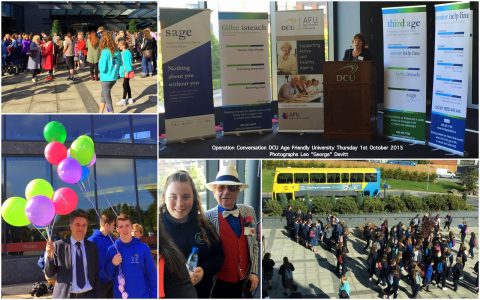Age Friendly University Global Network



The AFU Global Network led by Dublin City University (DCU) is committed to working to promote and support an inclusive approach to healthy and active aging. Since commencing in 2012 DCU developed Ten Principles of an Age-Friendly University which set out a framework for institutions of higher education to embrace age-friendly practices. In DCU we do this by informing our students and challenging ageism, we focus on innovation to address specific issues affecting older adults, offer learning opportunities for social and cultural interactions, and programmes in education, health, and technology for people across the generations to promote a greater, more connected and productive quality of life to support positive and active ageing. The Ten Principles conceived and launched in DCU clearly resonates with the higher education sector as we currently have 45 members representing 4 continents in the network. On the DCU campus over 2,000 older people attend customised programmes and integrate with traditional students. We have a body of older people who volunteer to inform and contribute to research as citizen researchers and co-designers. We have a large intergenerational programme where students and older people share skills. We also work with those working on behalf of older people as experts in how our AFU Principles are delivered. The impact on students, staff and the wider community has been positive. Ageing stereotyping is being challenged and perceptions have changed. The opportunities to engage socially have brought many older people onto the campus and the evolution of intergenerational organic friendships is very interesting. Lessons we have learned: Involve everyone in the planning, set deadlines, be realistic and review regularly.
Website: https://www.dcu.ie/agefriendly/welcome.shtml
Main target group: Older people in general
Other target group(s): older migrants
Sector(s): Education, Health, Housing, Information and communication, Labor, Long-term care, Social protection, Transportation
Desired outcome for older people:
Learn, grow and make decisions
Name: ,